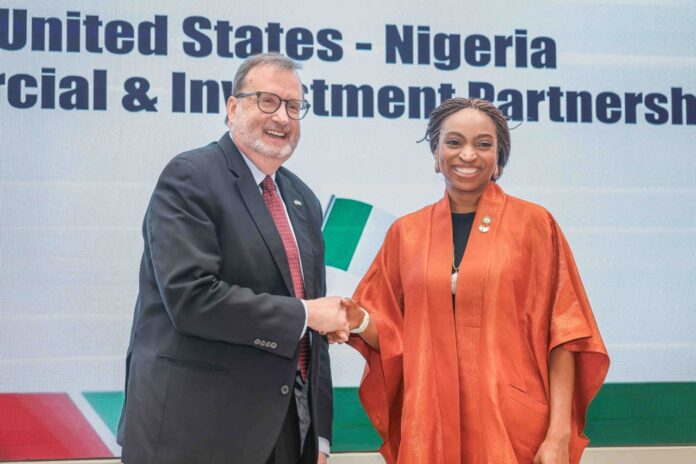The U.S. Mission in Nigeria has joined the American Soybean Association’s World Initiative for Soy in Human Health (ASA WISHH) and SejFarms Consult Limited (SejFarms) at the graduation ceremony for the Next Gen Leaders for Aquaculture Innovation Program.
Via this scheme, 10 young Nigerians in the aquaculture industry, selected through a competitive process, gained firsthand experience in modern fish farming—including using soybean to feed fish—through a structured five-month training program.
The U.S. Mission Agricultural Counselor, Chris Bielecki, while speaking at the event, noted that agriculture is at the heart of the U.S.-Nigeria commercial and investment partnership, “By fostering innovation and promoting best practices, the U.S. soy industry is helping to build a resilient agricultural sector in Nigeria, ensuring long-term food security and economic stability.”
Showing its commitment to the initiative, ASA WISHH and SejFarms, signed a three-year Memorandum of Understanding (MOU) to expand their partnership and advance Nigeria’s fish production.
Managing Director/CEO of SejFarms, Sejiro Michael Oke-Tojinu, emphasised the importance of the agreement, saying, “This MOU with the World Initiative for Soy in Human Health demonstrates that we are strengthening our commitment to encourage the growth of Nigerian aquaculture and create new opportunities for young people to be trained in aquaculture, including high-quality feeds.”
Jamie Beyer, ASA Director and a soybean farmer, expressed appreciation to the U.S. Foreign Agricultural Service, for its support in leveraging resources and programmes to expand U.S.-Nigeria agricultural trade.
Nancy Kavazanjian, a Wisconsin soybean farmer and member of the ASA WISHH trade delegation to Nigeria, noted that the partnership showcased the potential of U.S. soy to strengthen Nigeria’s aquaculture industry.
The U.S. Mission is committed to fostering collaboration between U.S. and Nigerian agro-businesses. With bilateral agricultural trade reaching $429 million in 2024 and on track to exceed the figure in 2025, the United States values Nigeria as a key agricultural trade partner.

